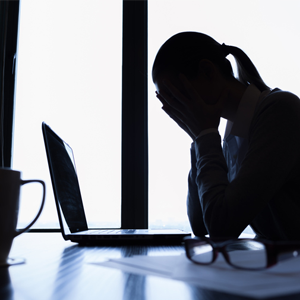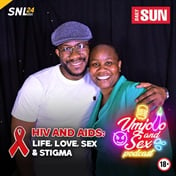
Millennials struggling with depression aren't being helped by their use of Facebook, Instagram or Snapchat, a new study reports.
College students who meet the criteria for major depressive disorder tend to use social media more often and are more heavily addicted to social media, researchers found.
Flattering portrayals
They're also more likely to use social media in ways that exacerbate or highlight their depression, the study said.
For example, depressed young adults are more likely to compare themselves on social media to people who appear better off than them, said first author Anthony Robinson. He's a research assistant in the psychology department at Texas State University.
People who post to Facebook or Instagram take pains to portray themselves in a flattering light, Robinson said.
"If people are making comparisons based on this inflated image that's being presented, it can cause feelings of inferiority," Robinson said.
Depressed young adults were also more likely to be bothered if tagged in an unflattering picture, less likely to post pictures of themselves with other people, and more likely to self-censor what they posted to avoid the judgment of others, results showed.
Major depressive disorder
For the study, Robinson and his colleagues asked 504 undergraduates at Texas State to complete an online survey. The survey assessed their social media use and asked a variety of psychological questions.
Those with symptoms of depression reported behaviours like excessive sleeping, feelings of hopelessness and guilt, or a loss of pleasure in activities they used to enjoy, Robinson said.
About 16% of the students met the criteria for major depressive disorder, which Robinson said was an "extremely high" proportion.
Major depressive disorder affects nearly 7% of Americans 18 and older in any given year, according to the US National Institute of Mental Health. Young adults 18 to 25 are the age group most likely to have had a major depressive episode in 2016, around 11%.
The no-holds-barred, say-anything-without-consequences nature of social media could contribute to people feeling bad about themselves, Robinson said.
"If you're spending more time on these platforms and you're being trolled or cyberbullied, it's going to have a negative effect on your psychological well-being," Robinson said.
Only social contact
But because this was an observational study, the researchers can't say in what direction the association between depression and social media works, noted Joseph McGuire, an assistant professor of psychiatry and behavioural sciences at Johns Hopkins Children's Center in Baltimore. He was not involved with the study.
"Is it that people who tend to be on social media more then start to feel depressed, or is it that the people who are more depressed are more withdrawn and this is their only social contact?" McGuire asked.
"If I spend two hours a day, am I more likely to be a little bit down or depressed compared with someone who is only on 20 minutes a day? Or do I never go out because I'm depressed, but I still want that social contact, so I log on to social media?" he continued.
Another new study backs up these findings. Researchers found that people are more aware of their own physical ailments if they tend to use Facebook a lot and frequently compare themselves to people apparently better off than themselves, according to findings in the January issue of the journal Heliyon.
Counselling centres
College students who are feeling depressed should assess their own social media use, and either cut back or try to change their online behaviours if they are using the technology in ways linked to depression, Robinson said.
It wouldn't hurt at all if they also sought counselling, McGuire said.
"There's a lot of counselling centres available at academic centres. There's that support there, and it's intended to help kids who are struggling," McGuire said. "Reaching out to a professional, even if you don't think you have a problem, then you can at least start to have that dialogue."
The new study was published in the Journal of Applied Biobehavioral Research.
Image credit: iStock
















